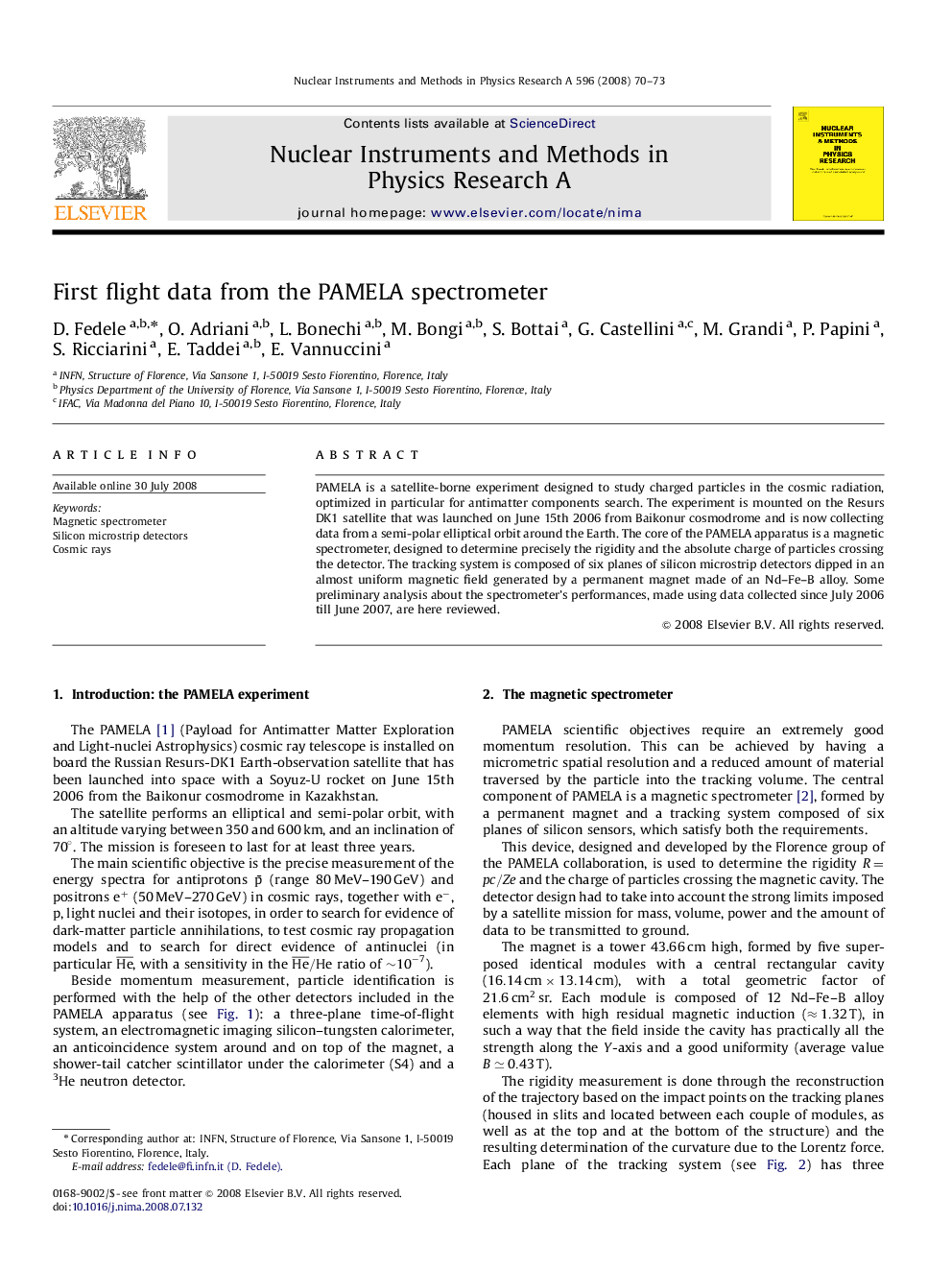| Article ID | Journal | Published Year | Pages | File Type |
|---|---|---|---|---|
| 1830243 | Nuclear Instruments and Methods in Physics Research Section A: Accelerators, Spectrometers, Detectors and Associated Equipment | 2008 | 4 Pages |
Abstract
PAMELA is a satellite-borne experiment designed to study charged particles in the cosmic radiation, optimized in particular for antimatter components search. The experiment is mounted on the Resurs DK1 satellite that was launched on June 15th 2006 from Baikonur cosmodrome and is now collecting data from a semi-polar elliptical orbit around the Earth. The core of the PAMELA apparatus is a magnetic spectrometer, designed to determine precisely the rigidity and the absolute charge of particles crossing the detector. The tracking system is composed of six planes of silicon microstrip detectors dipped in an almost uniform magnetic field generated by a permanent magnet made of an Nd-Fe-B alloy. Some preliminary analysis about the spectrometer's performances, made using data collected since July 2006 till June 2007, are here reviewed.
Related Topics
Physical Sciences and Engineering
Physics and Astronomy
Instrumentation
Authors
D. Fedele, O. Adriani, L. Bonechi, M. Bongi, S. Bottai, G. Castellini, M. Grandi, P. Papini, S. Ricciarini, E. Taddei, E. Vannuccini,
